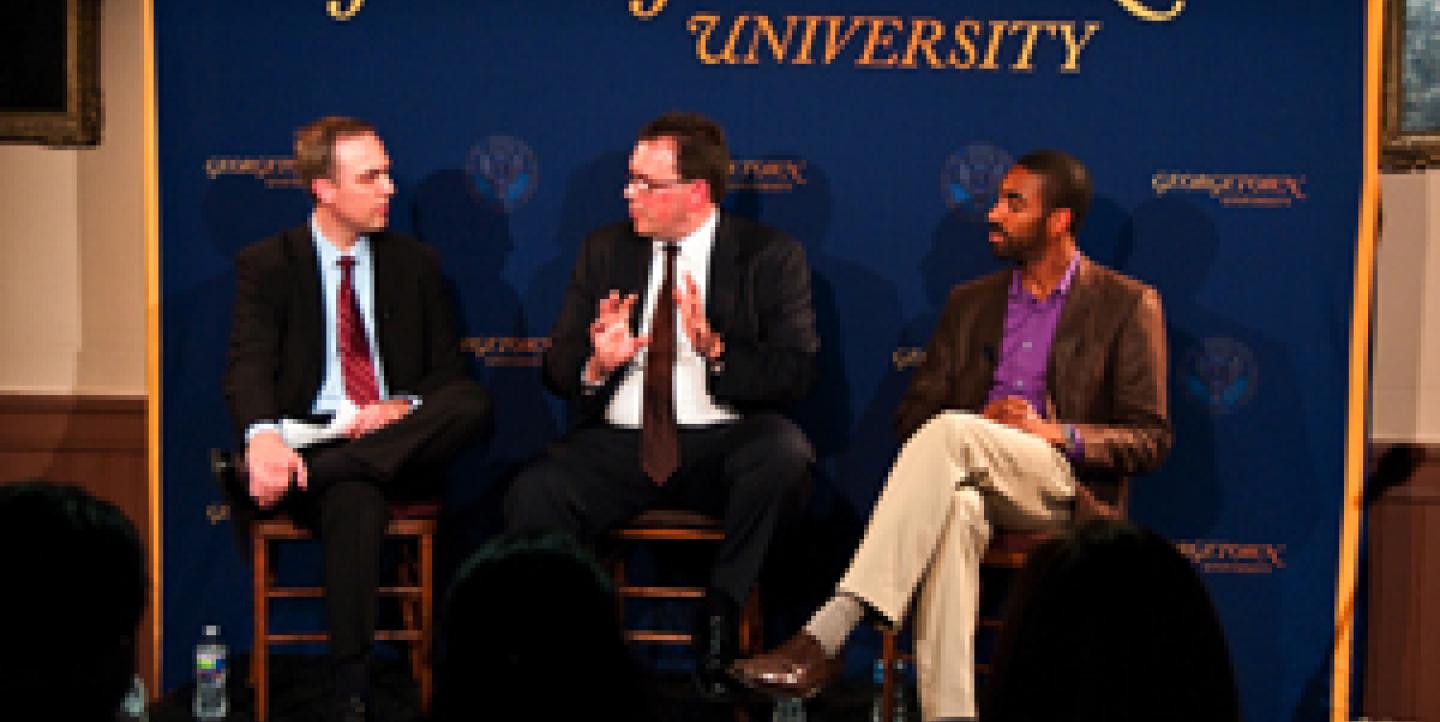When longtime newspaper journalist Steve Buttry decided he wanted to get involved in a new online news venture in Washington, D.C., he didn’t submit a resume, write an email or make a telephone call.
He sent a 140-character cover letter -- on Twitter -- to Jim Brady, the former executive editor of washingtonpost.com and the brains behind "TBD."
Now, Buttry directs community engagement at TBD, a TV station and website that delivers local news and community information from the Metropolitan Washington, D.C., region.
Buttry's tale shows how the formula for landing a job in today’s new media environment has been turned on its head. To be marketable in this field in transition, today’s journalists must do more than just report news; they must know the industry, the audience and be well-versed in digital technology. (And using Twitter doesn’t hurt either.)
When TBD's managers filled the organization's 50 staff positions last spring, they were looking for journalists who could act not only as reporters, but also as "curators" and "community managers," Brady said last week at a Georgetown University-sponsored lecture, "The Anatomy of a News Startup." TBD is a mix of original reporting, aggregation and community engagement on local topics including weather, commuting, sports and entertainment. The site features hand-picked content from 163 area blogs, as well as local news and TV coverage.
The most competitive candidates were social media savvy, Brady said, and they understood how the site would relate to today’s interconnected media environment.
"There is a difference between knowing the web and truly understanding it," Brady said at the event, put on by Georgetown’s School of Continuing Studies. "And that comes from using [the web] maniacally." If you’re at a party and someone says you should get on Foursquare, "you should go home and use it."
Panelist Matt Thompson, an editorial product manager at National Public Radio (NPR), agreed that experimentation and fearlessness on the web were key factors when staffing NPR's new-media startup Project Argo. But the main ingredient for new hires at Project Argo, he said, was "passion."
Project Argo is comprised of 12 topic-focused local news websites in conjunction with NPR radio stations around the United States -- local music in Philadelphia, race and class in Washington, D.C., climate change on Cape Cod, Mass. Because each of the 12 sites serves a niche audience, both bloggers and community managers must offer authoritative voices on the subject.
Project Argo's DCentric blogger Anna John is a long-time D.C. resident and cofounder of Sepia Mutiny, a blog and cultural forum for second-generation South Asian immigrants. On Multi-American in Southern California, curator Leslie Berestein Rojas has several years' experience reporting on immigration issues.
Most news organizations -- new or old -- are becoming niche operations, according to the Pew Project for Excellence in Journalism’s 2010 State of the News Media report, and "more specific in focus, brand and appeal."
Being able to claim specialization or expertise in an area, panelists agreed, is integral.
"You can do a lot with passion about a subject and knowing how to communicate that subject with a wide audience," Thompson said. "It will never steer you wrong."
Tom Mattesky, former deputy Washington bureau chief for CBS News and a Georgetown Journalism professor, thinks "knowing your audience" is perhaps the most important thing for his students to learn. "The days of the 'voice of God' are over," Mattesky said after the event, referring to the authoritative, comprehensive role of journalists in the past. "Now we have to take into consideration not just what people need to know but what they want to know."
Thompson encouraged aspiring journalists to learn to build and engage a community online as well. "Have a website or a blog of your own," Thompson said, and "draw an audience."
To begin building a presence on the web, panel moderator and Georgetown Journalism professor Carlos Roig urged students to share content on social networks and create a portfolio website with their name attached to it. Roig is Senior Vice President of Digital Media and Broadcast Strategy at Home Front Communications, a media strategies and content creation firm based in Washington, D.C.
"Put your stuff out there with pride," Roig said. "That is your calling card."
But, he cautioned: "Take control of how you're represented" on the web. "If you don't take control," he said, "it will take control for you."
Georgetown Journalism student Krystina Lucido, 23, has covered the Baltimore sports beat at PressBox for the past two years and attended the forum. She considers herself a versatile journalist -- she works on PressBox's website, writes print stories and produces the TV show "Inside PressBox." Still, she says, she is working to improve her social media skills.
"I always felt I could opt out or in [of social media] and I chose to opt out," she said. "But what I’m learning is that this job is half journalism, half marketing. You have to know it."
Even then, Brady points out, new tools are constantly emerging. "You've got to stay open-minded," Brady said. "Journalism is in a huge transition and we're not even a quarter of the way through yet."

